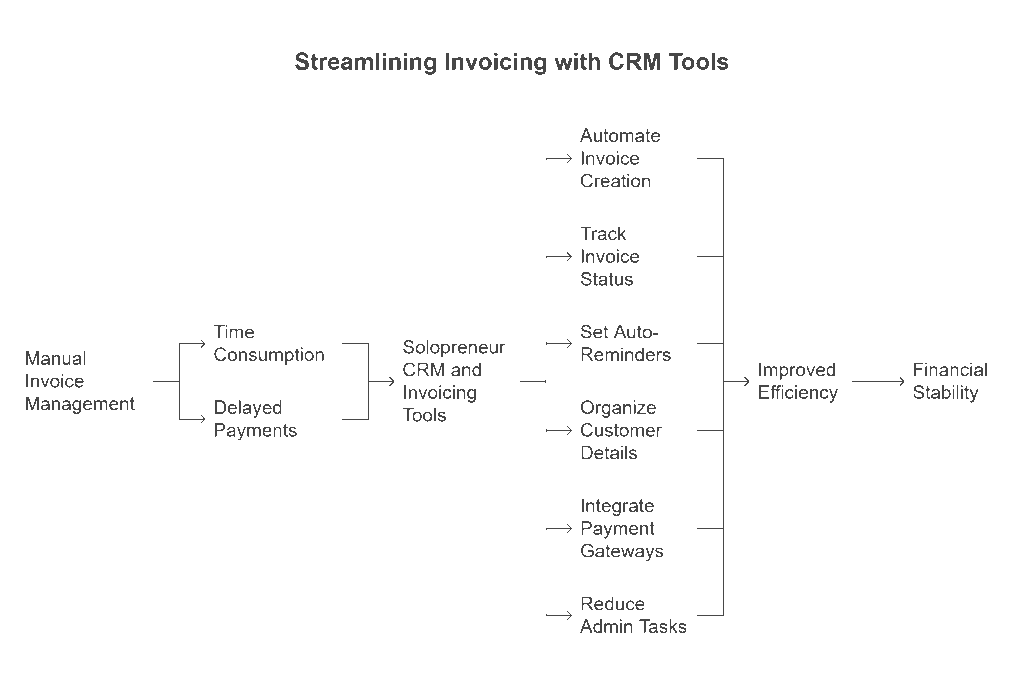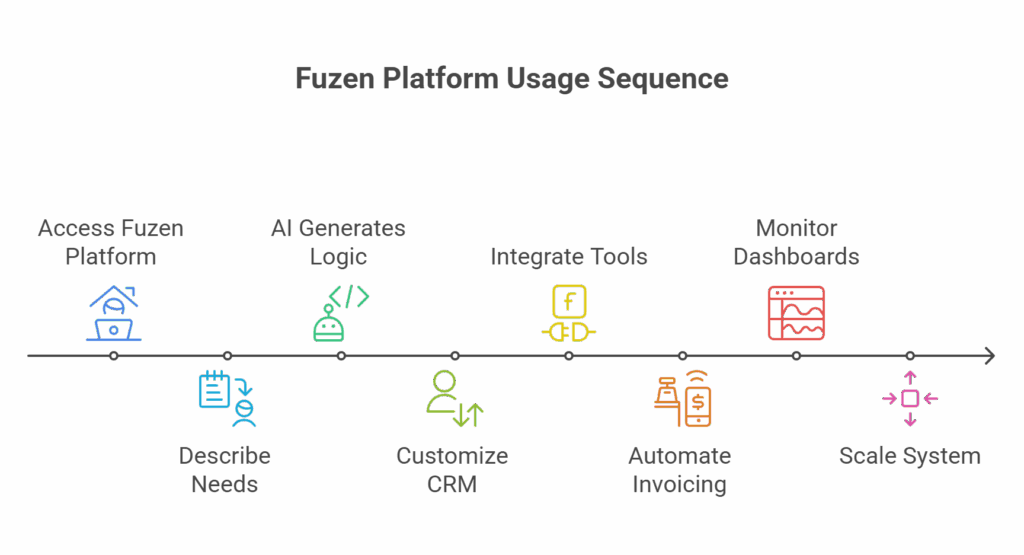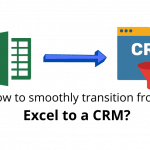Managing invoices manually is a major challenge for many solo business owners. As a solopreneur, you already juggle multiple roles, and invoicing shouldn't consume your valuable time. That’s where Solopreneur CRM and Invoicing Tools come in.
Preparing and sending invoices by hand is not only tedious but also time-consuming. Each hour spent manually creating invoices is time taken away from growing your business or serving your clients better.
Delayed payments are another common issue. When clients don’t pay on time, your cash flow takes a hit. This can make it harder to manage expenses and may even hold back your business growth.
Using a reliable Solopreneur CRM and Invoicing Tools can completely change this. With automation features, you can schedule invoice delivery, set up payment reminders, and track pending payments easily. These tools simplify your financial workflow, reduce stress, and improve cash flow — all while freeing up your time to focus on what matters most.
The Role of CRM in Automating Invoice Management

In today’s fast-paced digital world, email remains one of the most powerful communication tools. While social media may grab the spotlight, email consistently delivers higher engagement, stronger trust, and better conversions—especially for solopreneurs.
- A well-timed, personalized email can convert cold leads into paying customers.
- Email builds long-term relationships and turns one-time buyers into loyal brand advocates.
- Managing email manually can become overwhelming when you're handling every part of your business alone.
- A solopreneur email automation tool helps streamline this process by handling repetitive tasks and allowing you to focus on strategy and personalization.
By using a solopreneur email automation tool, you can make email work harder for you—without working harder yourself. It’s a smarter way to scale communication while staying focused on what matters most.
Keeping Financial Records Linked to Clients
A connected system can be a game-changer for solopreneurs. With the right Solopreneur CRM and Invoicing Tools, you can link financial records directly to each client—eliminating the chaos of scattered paperwork and disconnected systems.
- All client and financial information is stored in one organized, accessible platform.
- Quickly view invoice history, payment status, and pending balances without switching tools.
- Understand financial behavior and patterns to manage relationships more strategically.
- Easily generate reports for accounting or track income trends for smarter planning.
- Use data-driven insights to improve cash flow, spot issues early, and support business growth.
With Solopreneur CRM and Invoicing Tools, you gain clarity, efficiency, and control—all from a single, simplified solution built to help your business thrive.
Exploring Solopreneur CRM Tool Options: QuickBooks, FreshBooks & More
When it comes to CRM and invoicing tools for solopreneurs, several popular options stand out. QuickBooks and FreshBooks are among the most widely used, but there are more tools that might fit different needs.
QuickBooks
QuickBooks is renowned for its comprehensive accounting features. It provides robust invoicing options, expense tracking, and even tax calculation. It's designed to help you manage your finances with ease. For solopreneurs looking for a powerful tool to handle complex financial tasks, QuickBooks is a solid choice.
FreshBooks
FreshBooks is known for its user-friendly interface. It offers features like time tracking, expense logging, and professional invoicing. FreshBooks suits solopreneurs who need straightforward, easy-to-use tools to manage basic accounting without diving into too many details.
Aside from these heavyweights, there are other tools like Zoho Books, which integrates well with Zoho CRM, and Xero that offers excellent cloud accounting features.
How Fuzen Can Revolutionize Your Billing Process

Fuzen’s no-code platform empowers solopreneurs to build fully customized Solopreneur CRM and Invoicing Tools without writing a single line of code. It integrates seamlessly with tools like QuickBooks and FreshBooks, allowing you to automate invoicing, track payments, and link billing directly to customer profiles—all in one place. With built-in AI-powered customization, you simply describe your needs, and Fuzen generates the logic and interface instantly. From automating follow-ups to segmenting clients by payment history, it adapts to your business goals with ease.
Key advantages of using Fuzen for solopreneurs include:
- One-time hosting cost with no recurring CRM subscription fees
- Drag-and-drop builder for fast, intuitive CRM setup
- Built-in tools to automate invoicing, reminders, and payment tracking
- Real-time dashboards to monitor sales, revenue, and client status
- Easy connection with payment gateways and reporting modules
- Flexibility to evolve your system as your business scales
Whether you're a freelancer, coach, consultant, or online seller, Fuzen helps you manage client data, automate invoicing, and track finances—all in one place. With minimal effort and maximum efficiency, Solopreneur CRM and Invoicing Tools built on Fuzen let you stay focused on what matters most: growing your business.
Conclusion
Integrating your CRM with invoicing tools is essential for time-saving and efficient billing. Automation helps streamline your processes, reduces manual errors, and keeps your cash flow steady. We've discussed how a connected CRM can automate billing, link records, and offer comprehensive client insights.
Fuzen stands out as a powerful ally in this journey. Its nocode platform allows you to create a customized CRM that works hand-in-hand with your invoicing tools. With seamless integration, strong AI, and scalable options, Fuzen simplifies these processes, helping you stay organized and focused.
Explore Fuzen's tools to help you save time and money, ensuring you keep track of payments effortlessly and elevate your solopreneur venture to new heights.

Pushkar is a seasoned SaaS entrepreneur. A graduate from IIT Bombay, Pushkar has been building and scaling SaaS / micro SaaS ventures since early 2010s. When he witnesses the struggle of non technical micro SaaS entrepreneurs first hand, he decided to build Fuzen as a nocode solution to help these micro SaaS builders.


